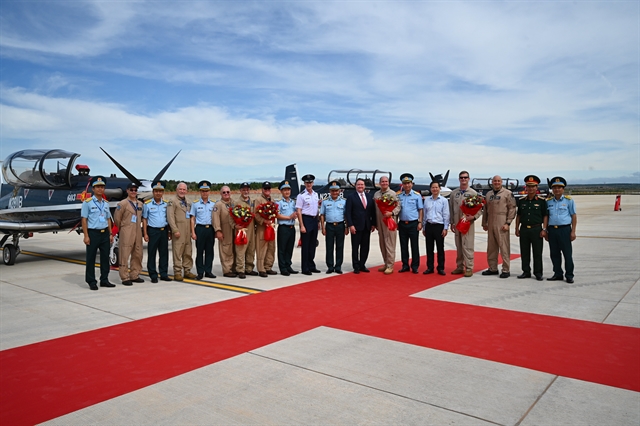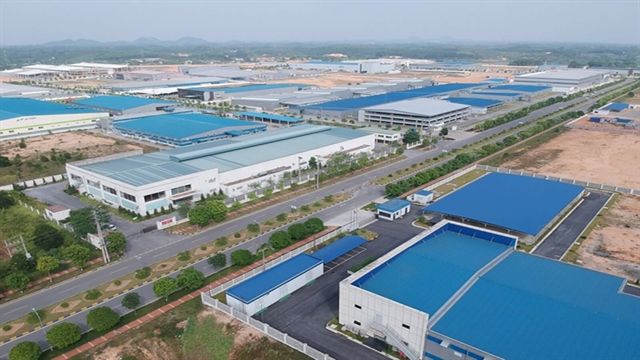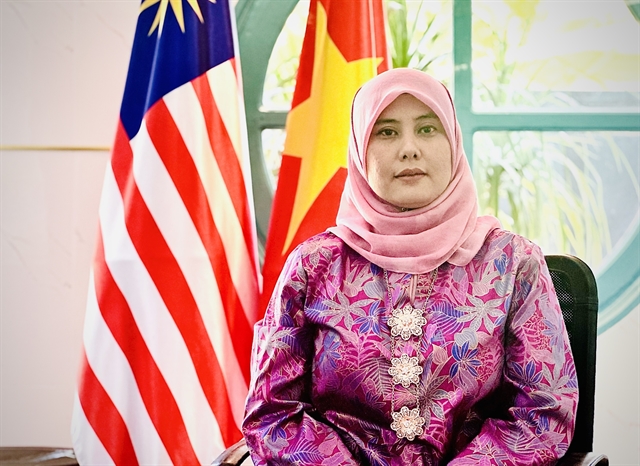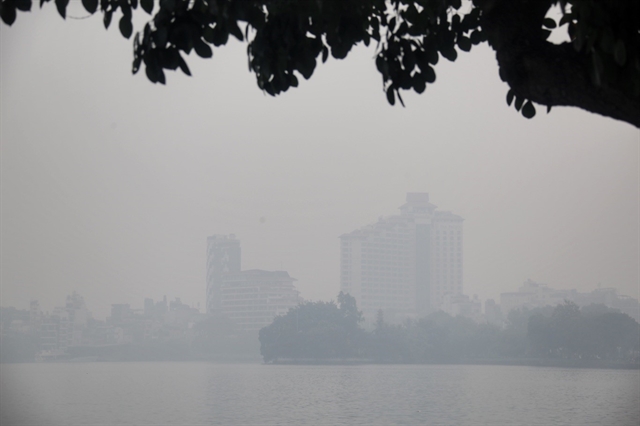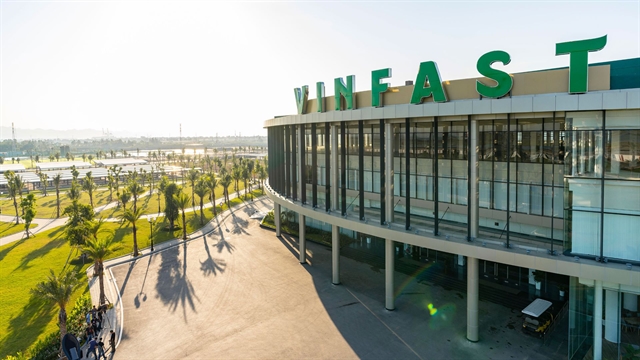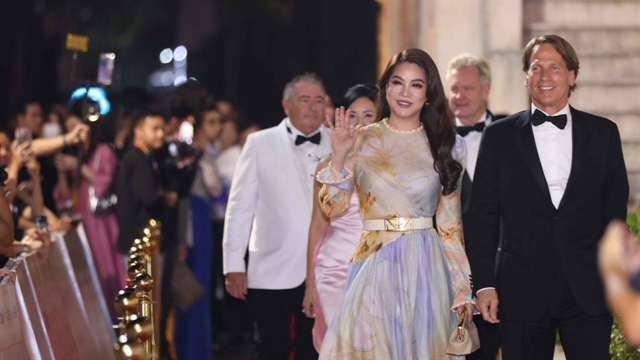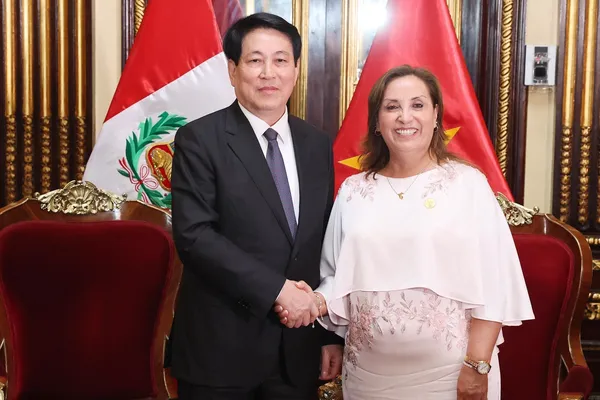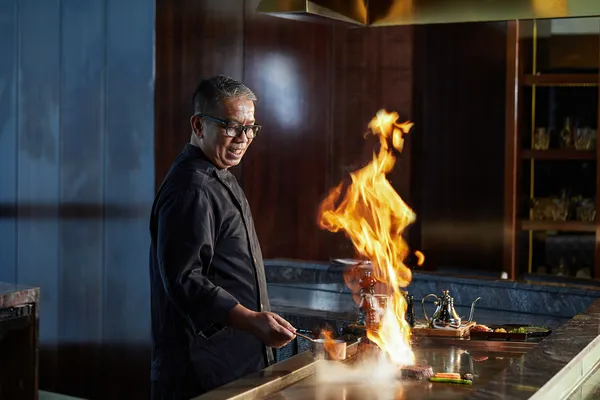 Inner Sanctum
Inner Sanctum
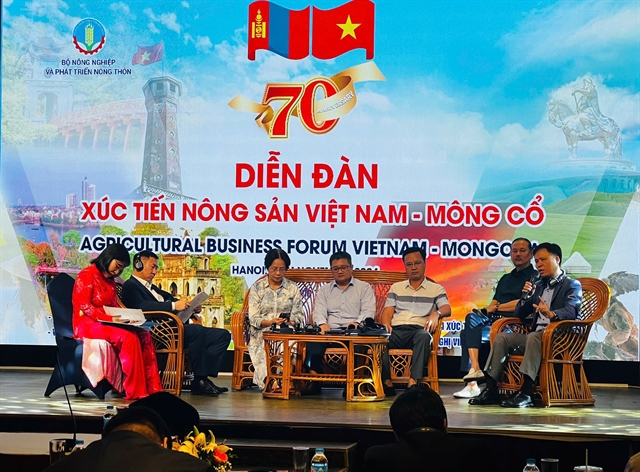
In 2010, singer Thanh Bùi returned to Việt Nam after living and growing up in Australia. He quickly became a famous singer in Việt Nam with many hits. Thanh is continuing to follow his passion for music while investing in advanced educational models and collaborating with international partners in education. Việt Nam News talks with Thanh Bùi about his career as well as his love for music and education.
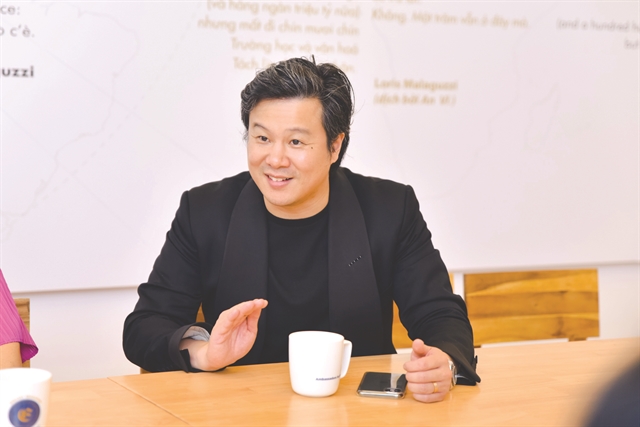
|
| Thanh Bùi |
Inner Sanctum: Please tell us a little bit about yourself.
I was born and raised in Australia, and started my music career in 2004 as one of four members in the boyband North. I was fortunate to be a Top 8 Finalist in the Australian Idol programme in 2008 and travel the world as a singer/songwriter/producer, which ultimately led me back to Việt Nam where I released my first Vietnamese single “Lặng Thầm Một Tình Yêu” in 2010.
It’s been an incredible journey of self-discovery being home over the past nine years, and I feel blessed to have worked with some of Việt Nam’s finest talent as a writer, producer, mentor and now, as an educator and arts advocate, promoting Creative Education and Creative Industries in this incredible country.
I believe so strongly in young people and their enormous capacity to bring our nation forward.
Returning to Việt Nam was never something I imagined, having spent my life in Australia. But deep down, I’ve always had this feeling of displacement, growing up in a Western culture during the day, but when I came home to my family, I was Vietnamese. It wasn’t until I came home to Việt Nam that I realised it helped me come to terms with my roots – with my identity – with my history.
So music brought me back to Việt Nam after Australian Idol, and it’s been an incredible period of my life to gain the respect and recognition of the Vietnamese public, and to have the opportunity to work with Việt Nam’s legacy artists but to also contribute to the next-gen of Vietnamese artists.
Việt Nam has given me the base to launch other projects across the region, such as the collaboration with perhaps the biggest band in the world, BTS, and other international artists. So, in terms of dreams, I am fortunate to say most of my dreams have been achieved, but because of that, I feel a deep sense of responsibility to support the arts in Việt Nam so that we can truly become globally recognised for our artistry and creativity. Another dream!
Inner Sanctum: Besides the surprise return to Việt Nam, you also surprised fans about your decision to invest in education. What inspired you?
I believe that for the region and the world to recognise Việt Nam as a nation contributing to the world fabric of the arts and creativity, we must change mindsets.
In Việt Nam today, many families and parents do not support their children to pursue careers in the creative industries, and thus, they do not invest in creative education as they would English or mathematics. Understanding that the 4th industrial revolution is upon us, with AI and technology automating many of the industries of today, the one thing that robots can’t be or replace is creativity.
I strongly believe that creativity is the new currency of tomorrow’s world, and I am passionate in redefining the definition of creativity through the education systems that we are building. I have two kids and I believe creativity should be placed at the centre of their learning, so that they can be best prepared today for tomorrow. I hope that through the work that we do, all children in Việt Nam will gain access to creative education.
Inner Sanctum: Why did you choose to invest in education instead of another field?
I believe in investing in the future, and that’s why I chose education, and more importantly, it's my passion and not just a business. I feel strongly that those who invest in education should think more about their ROI (return on investment) as the outcome of student successes and contributions to society, rather than always being skewed towards the bottom line. The children are 100 per cent of Việt Nam’s future.
I also believe in investing in infrastructure to support creative industries because I believe there is enormous potential, growth and need in these areas. As part of our group, we contribute to education, arts/culture and media industries because all are intertwined and are important in supporting creativity from the grassroots to industry.
Inner Sanctum: Could you talk about some of these educational programmes? What is the criteria of your educational partners, and what are the values and benefits for children and students in Việt Nam?
Beginning with the Soul Music & Performing Arts Academy, we have been fortunate to lay a foundation for creative education with the help of our partners in Asia Music & Performing Arts Education, the first iNGO in the arts, and partnering with international examination boards providing curricula and exams to students in Việt Nam, such as Trinity College of London, Associated Board, Australian Music Examination Board, Imperial Society of Teachers of Dance, National Association of Teachers of Dance, Alfred’s Publishing and others.
We have also diversified through the founding of Embassy Education. The Embassy Education Group consists of Little Embassy (Little Em’s), the first Reggio Emilia Approach pre-school in Việt Nam providing early childhood education for children aged 2 to 6; Royal Embassy Academy, a K-12 network offering the full International Baccalaureate (IB) programme complete with full arts and sports integration; and Global Embassy, which provides consultation, guidance and support services with qualified and experienced experts for educators, institutions, students and parents.
We chose these products because we believe they are the most top-line education products and vital components that should be part of Vietnamese children’s development. More importantly, one major component is the flexibility of our partners to allow us to contextualise the Vietnamese culture and setting.
For me, it’s not about bringing international education to Việt Nam as a turn-key solution – it’s about how we tailor it to the different needs of the Vietnamese child, a philosophy which we call ‘180 degrees East, 180 degrees West’. Our children must understand who they are, their roots and identity, but be armed with the right tools to integrate into the ever-increasing global world.
Inner Sanctum: It's not easy to introduce advanced education programmes to Việt Nam, so how did you convince your partners to work with you?
Firstly, through my dealing with many international partners, Việt Nam is certainly on the rise, and there is great interest to partner with Việt Nam more than ever before, particularly in the education sector. Many potential partners see our growing population as well as the young demographic, and want to come to this market. Therefore, I believe that if you have a vision that is strong and aspirational grounded in authentic core values, that the convincing of partners becomes somewhat easier. That said, the process of convincing our major partners such as Reggio Children, Harvard Project Zero, University of Turku and others has taken many years, and often actions need to speak louder than words, and I am proud that we have been able to deliver on the authenticity of what we do, and its strong community focus on building education capacity not just for elite families but for as many Vietnamese children as possible.
Inner Sanctum: Having been trained abroad, you are introducing international educational methods. What are the strengths and weaknesses of Việt Nam's educational methods? What should parents and teachers do to promote these strengths and apply other advanced educational methods?
I believe that the area that Vietnamese education needs to improve is the focus on creativity, and placing creativity at the center of learning. With the onset of the 4th industrial revolution, we know that technology will change and automate a high percentage of today’s jobs. So what kind of world will our children be living in? A world that we do not know exists today.
So learning by heart, learning enormous amounts of facts that one can Google search in seconds, is not the pathway to future success, I believe. It’s how one uses knowledge but, more importantly, as AI takes over the world, truly successful people will see opportunities that don’t exist, be able to adapt when change happens, and be able to conquer and embrace the unknown.
And when one understands that creativity is what leads innovation and science, there is a strong need, stronger than ever before, to place creative education at the centre of our children’s curriculum. And as for the Việt Nam context, the future will be dictated by parents, and it is vital that they understand that though math and science are important, being able to communicate, collaborate and think outside-the-box is more important to their child’s success, and can be achieved through the integration of creative education in all that the child does.
I think one major strength of Vietnamese methodology is the instilling of discipline in its students. Having taught thousands of children in Việt Nam over the past decade, I know they are very hard-working and are driven to achieve success. Discipline and hard work, together with adapting new opportunities to bring in innovative approaches, will no doubt build a stronger environment for learning in this country.
Inner Sanctum: Will you pause your love of music while you focus on investing in education?
My love for music and being creative has never stopped. It’s just been channelled into a different scenario, and this is where one of my passions is to redefine what it means to be creative. When I sit with parents and share more about creativity, many say to me that they are not creative. Many take the definition that one needs to ‘draw’ or be able to ‘play music’ or be ‘artistic’ to be creative. I believe there is a big difference between being ‘creative’ and ‘artistic’, as I believe that creativity happens in all walks of life and in all sectors. But it will take time for a new mindset in this area.
I think at this stage of my life, having spent close to 20 years on stage and in the music industry, I am more passionate about building education and media platforms to promote edu-tainment and supporting the development of an eco-system to promote and build the creative industries so that we can help Vietnamese talents reach their full potential.
But in 2020, I think a few new songs and collaborations may be on the cards! - VNS


